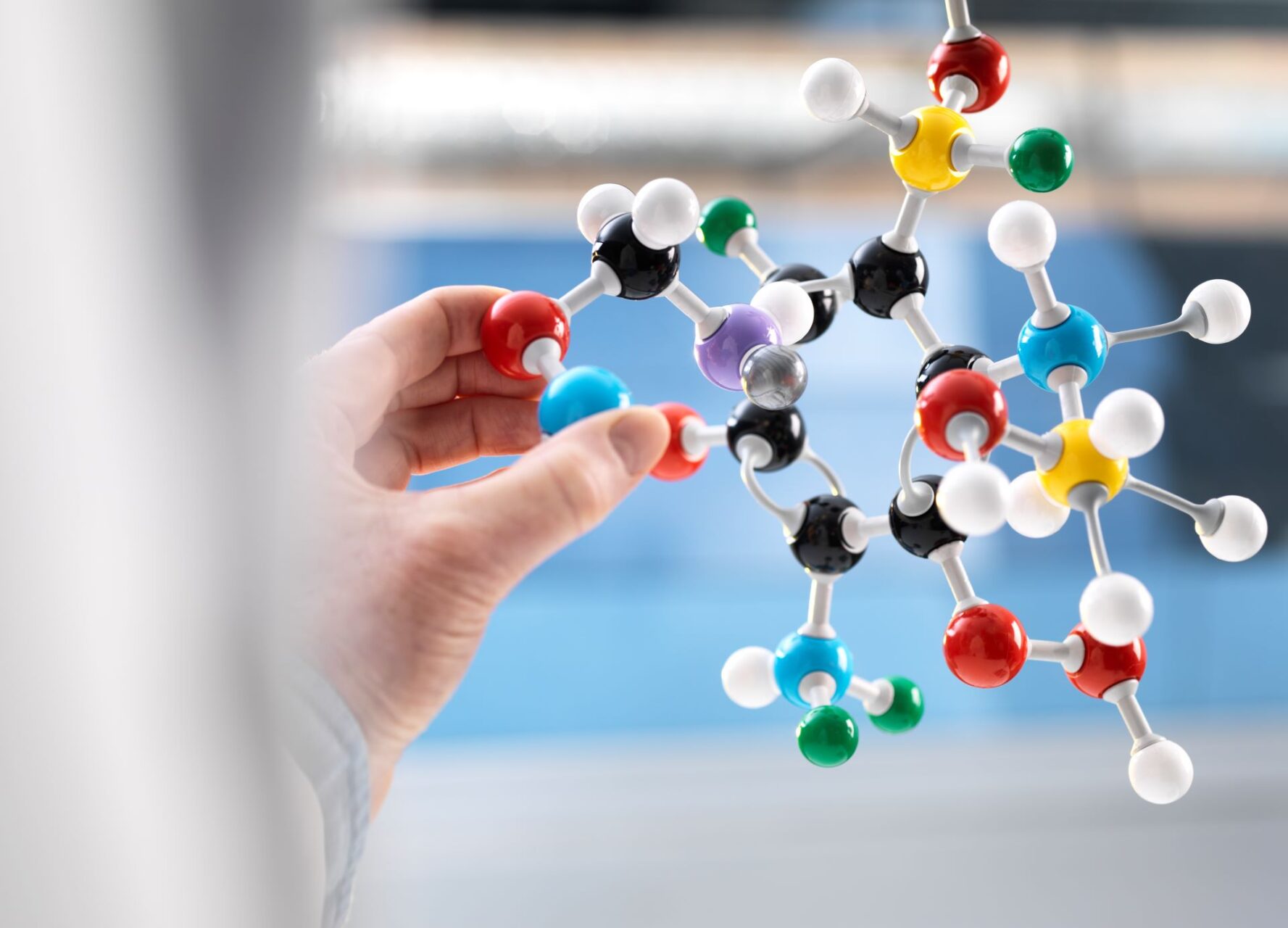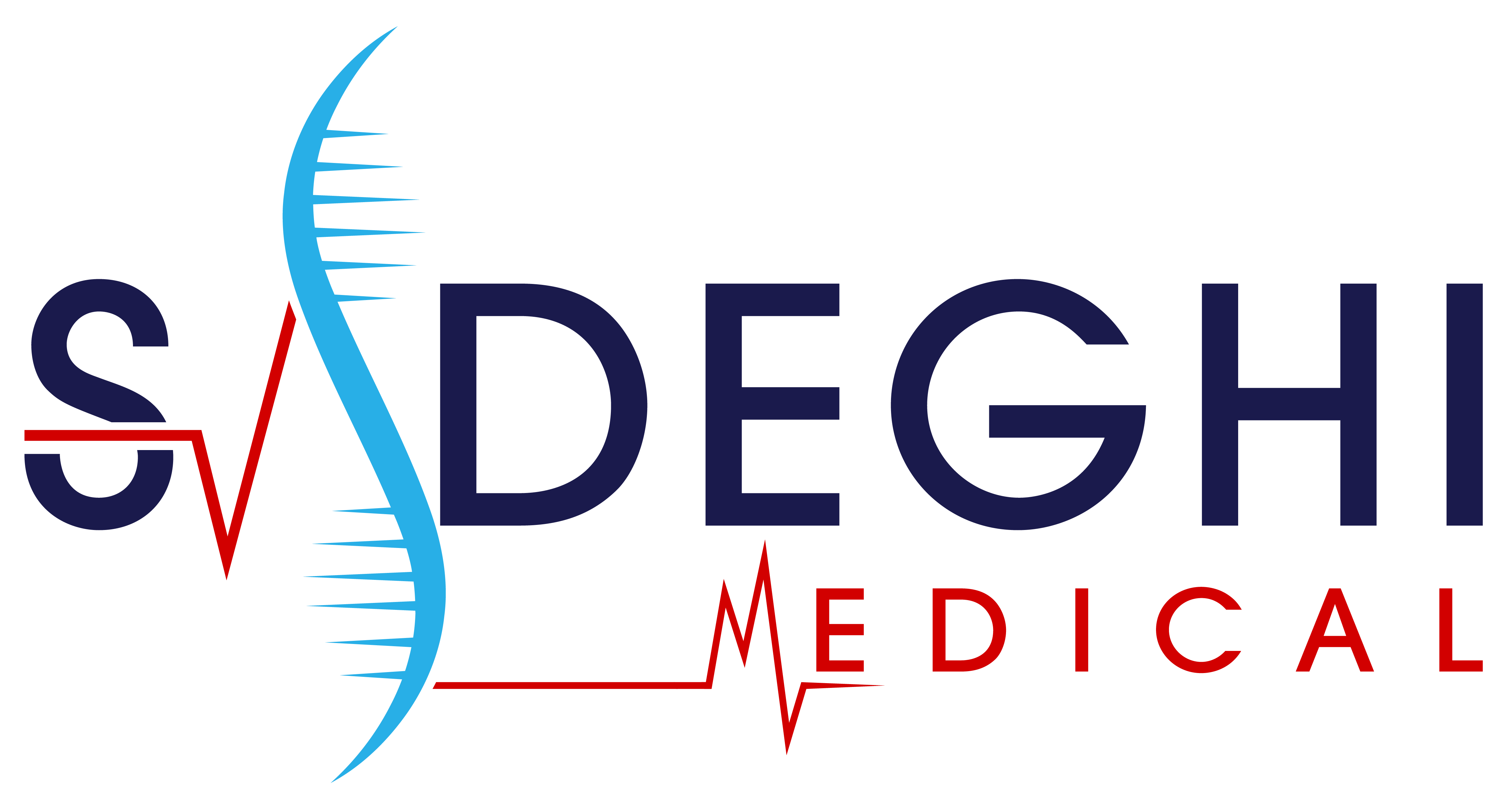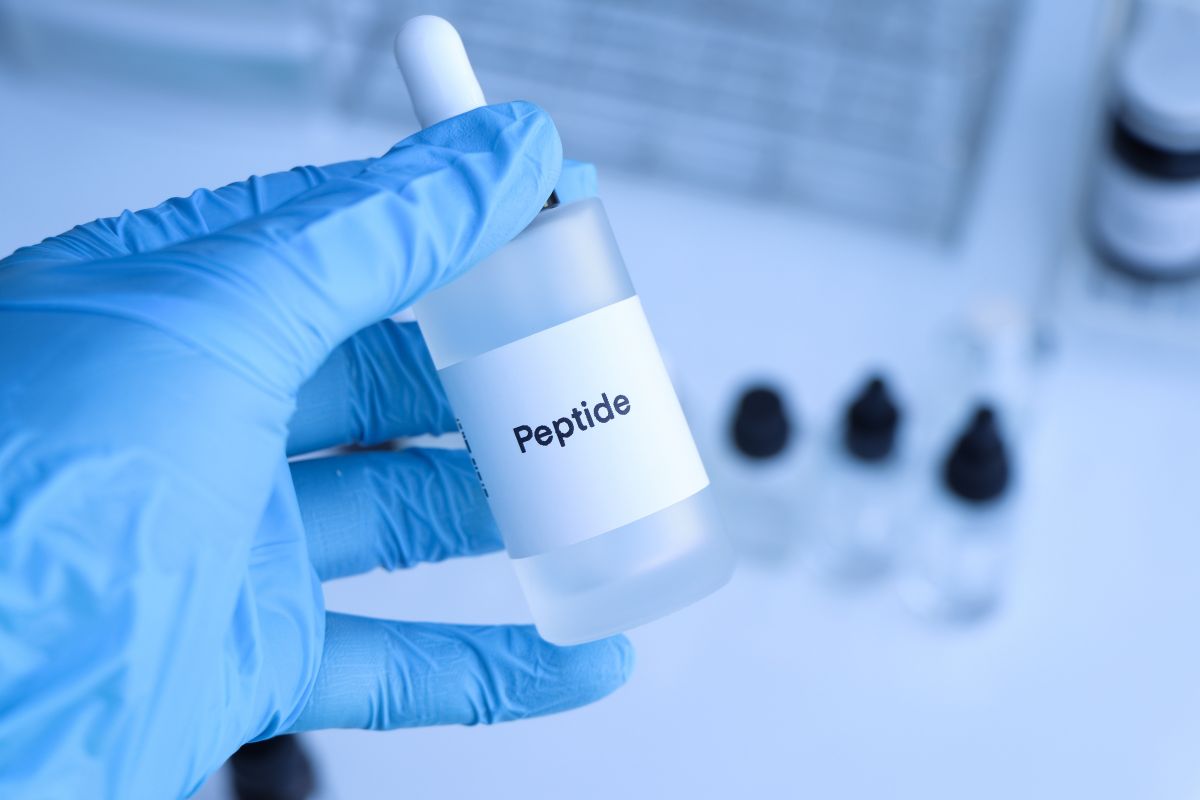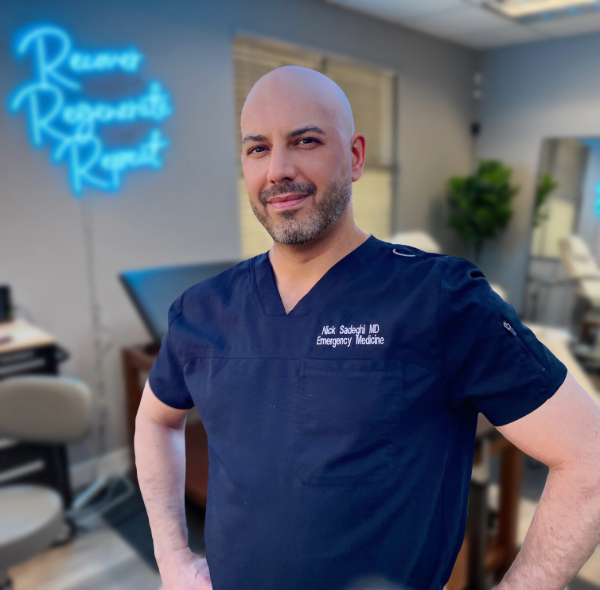- Las Vegas, Nevada
- New Jersey
- New York
- Las Vegas, Nevada
- New Jersey
- New York

Peptides

What are Peptides?
The name “peptide” simply means a chain of amino acids, which are the building blocks of proteins. For our purposes, peptides are a class of biologically active compounds that often mimic or interact with substances already found in the body. These substances can include hormones, enzymes, and other signaling molecules. Proteins and peptides in the body perform very specific and important biological functions. Peptides are typically shorter chains of amino acids that are designed to support or influence specific physiological pathways. Some peptides are structurally similar to naturally occurring compounds in the body, while others are synthetic or derived from non-human sources.
Table of Contents
What are peptides used for?
There are a wide variety of peptides currently being studied and used in clinical and wellness settings. This category includes compounds such as semaglutide, BPC-157, and sermorelin, as well as many others with differing biological roles. Peptides can serve a range of functions depending on their structure and mechanism of action. Below are some of the more commonly used peptides in longevity-focused and regenerative medicine:
BPC-157: Regenerative Support Peptide
BPC-157 is one of the more commonly known peptides in regenerative and longevity medicine. It was originally identified as a protein fragment associated with stomach tissue and was studied for its role in supporting the integrity of the stomach lining. Further research has explored its potential regenerative effects beyond the gastrointestinal tract.
For example, BPC-157 has been studied for its role in cellular and tissue-supporting processes, which may contribute to musculoskeletal recovery. It is often incorporated into regenerative medicine programs focused on supporting tissue health and recovery, particularly in active individuals.
Growth Hormone Stimulators
Another category of peptides includes growth hormone stimulators, such as sermorelin. These peptides mimic a naturally occurring hormone in the body that stimulates the pituitary gland to release growth hormone.
During childhood and early adulthood, growth hormone levels are higher and play an important role in growth and development. Growth hormone is also involved in tissue maintenance and recovery. As we age, natural growth hormone levels gradually decline, which may contribute to changes in recovery capacity, body composition, and overall tissue resilience over time.
For this reason, supporting healthy growth hormone is often considered an important component of regenerative and longevity treatment. It is essential that this is done carefully, as too much growth hormone can have negative health effects. Unlike synthetic growth hormone injections, these peptides are designed to stimulate the body’s own growth hormone release, allowing for a more regulated response when used under medical supervision.
Why Use Peptides?
Peptides offer a controlled, physiology-based way to support specific biological functions in the body, from tissue support to influencing growth hormone signaling. Here’s why they are gaining popularity:
- Regenerative Support: Peptides such as BPC-157 are studied for their role in supporting tissue health and recovery, particularly in muscles, joints, and connective tissues.
- Natural Growth Hormone Stimulation: Growth hormone–stimulating peptides like sermorelin are designed to encourage the body’s own growth hormone release, offering an alternative to synthetic growth hormone when used under medical supervision.
- Targeted Support: Because peptides are designed to interact with specific physiological pathways, they may be used to support targeted goals, such as recovery, body composition, or tissue maintenance.


Meet Dr. Nick Sadeghi
“The mission of my regenerative clinic is to help you feel better, look better, and support longevity and vitality—so you can remain as active, healthy, and engaged as possible for as long as possible.”
If you’re over 35 and feeling tired, gaining weight, losing motivation, struggling in the gym, or noticing changes in your libido—you’re not crazy. You’re not weak. And you’re definitely not alone.
I felt it too.
Using advanced regenerative and longevity-focused medicine, my practice is designed to support recovery, performance, and healthy aging. Our core treatments focus on optimizing natural biological processes with therapies such as Hormone Replacement Therapy, NAD, Regenerative Biologic treatments, Platelet-Rich Plasma, Peptides, Tenex, EBOO, and other modern techniques.
Dr. Nick Sadeghi
FDA Regulation of Peptides:
It’s important to understand that peptide therapies are regulated by the FDA, and not all peptides are available as FDA-approved or prescription medications. For this reason, it is essential to work with a qualified physician who is knowledgeable about peptide use, regulatory status, and appropriate clinical application. An experienced physician can help guide treatment decisions, ensure therapies are used appropriately, and tailor recommendations based on individual health goals, safety considerations, and current regulatory guidelines.

Conclusion:
Peptides represent a promising area within regenerative and longevity-focused medicine. Whether you’re supporting recovery or looking to support your body’s natural physiological processes, peptides can be a valuable tool in a comprehensive care plan. It’s important to work with a knowledgeable physician who understands peptide therapy, regulatory issues, and appropriate clinical use to ensure treatments are selected and used safely and responsibly.